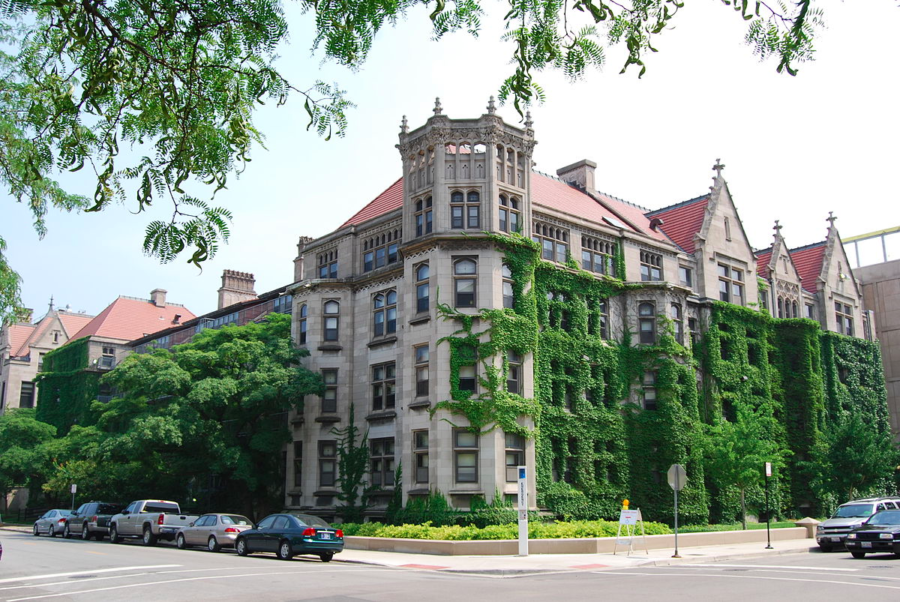Content Warning: This article mentions violence and sexuality-based discrimination.
On November 4, a federal judge barred the University of Chicago from removing a fourth-year student from University housing on the basis of a specific Title IX complaint, which the student alleges the University failed to investigate properly.
A suit filed by the student, referred to as John Doe, on November 3 alleges that the University failed to properly investigate allegations that the Title IX complaint lodged against him was filed as a part of a sexuality-based harassment campaign. The suit also states that the Title IX complaint was intended to preempt Doe’s own planned Title IX complaint against the filer of the original complaint.
Doe’s lawyers allege that the filer of the Title IX complaint against Doe, referred to as Student 1, was attempting to preempt a Title IX Doe intended to submit against Student 1: “In or around February of 2022, [Doe] began to experience harassment and inappropriate touching by Student 1. Student 1 constantly used hateful slurs against gay men.” The document, after describing language used to harass Doe in detail, says, “Since Student 1’s harassment began, [Doe] considered filing a Title IX complaint.”
Student 1’s Title IX complaint claimed that Doe had violently assaulted him on the night of September 29.
Per the lawsuit, which has been affirmed by an affidavit signed by Doe, on September 29, Student 1’s roommate invited Doe and Student 2 into the main room of Student 1’s suite-style dorm room. Student 1 entered the main room, and all four engaged in a casual conversation. Due to a comment from Student 2 regarding Student 1’s previous derogatory remarks targeting homosexual students, Students 1 and 2 proceeded to get into a verbal altercation in the dormitory hallway. During that altercation, in which Doe had no involvement, Student 2 said that he and Doe planned to file a Title IX complaint against Student 1. Student 3, who had previously walked back to the dormitory with Doe and Student 2, witnessed this argument.
Following this, Doe’s lawyers state, “Student 1, with knowledge of Student 2 and [Doe]’s intent to file a Title IX complaint with the University, filed a false complaint with University of Chicago Housing, falsely alleging that John had violently assaulted him on the night of September 29–30.”
Doe met with his Resident Heads and received a No-contact Directive on October 1, but he was not fully informed of the allegations made against him. In their Title IX complaint, Student 1 alleged Doe had forced his way into Student 1’s room, refused to leave when asked, and that there were other expanded conversations during Doe and Student 1’s interaction.
Unaware of the full allegations made against him, Doe proceeded to file a Title IX complaint against Student 1 on October 6. Doe’s attorneys state that the University’s failure to fully inform Doe of the allegations made against him constitute a breach of UChicago’s housing policy.
Doe was only fully informed of the situation when he received an outcome letter from the University on October 24 requiring that he vacate his dormitory by October 31. His lawyers claim that Doe was unable to adequately defend himself during the University’s investigation.
Doe subsequently filed an appeal letter on October 27 in which he outlined the procedural errors in the Housing investigation, brought new evidence in the form of testimony from Student 3, and raised the issues of Title IX retaliation. The appeal letter also requested that the removal order be overturned. Doe’s lawyer allege that the University “promptly and improperly denied” the appeal letter.
The suit filed by Doe’s legal team accuses the University of six counts: Title IX Hostile Educational Environment breach, Gender Discrimination in Violation of Title IX, Title IX Retaliation, a Violation of the Fair Housing Act, Breach of Contract regarding Housing Policies, and Breach of Contract regarding Title IX Policies.
In response to a request from Doe’s lawyers in their lawsuit, a judge placed the University under a restraining order on November 4, barring them from removing Doe from University housing until November 18. The judge released a full text opinion on November 7, wherein he cited the likelihood of success of Doe’s suit and outlined the irreparable harm that would befall Doe, including the potential for homelessness and impact on his academics, should he be removed from housing.
The case was filed in the District Court for the Northern District of Illinois Eastern Division, and is named John Doe v. The University of Chicago (1:22-cv-06105).
Doe is being represented by the attorney Steven Fine. Partners from Cleveland-based Kohrman, Jackson, and Krantz. Law firm Husch Blackwell is defending the University.
The Maroon reached out to both the University of Chicago and its legal representative at Husch Blackwell as well as the legal representatives for John Doe for comment. By the time of publication, none of the parties had responded with a comment. This story will be updated to reflect any comments The Maroon receives.
On November 14, lawyers for Doe requested that the restraining order on the University be extended through November 21 to allow the two parties to reach a resolution. The filing states that the University’s legal representatives have agreed to the extension. There will be a status hearing for the case on Thursday, November 17 at 9:50 a.m.









